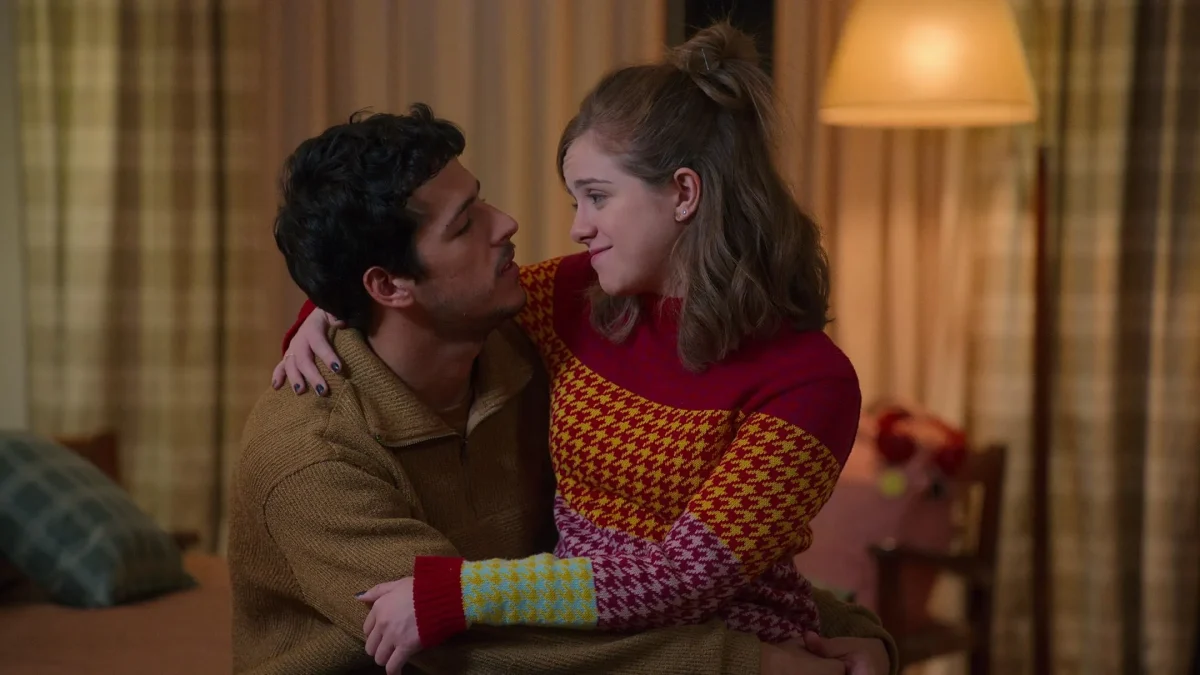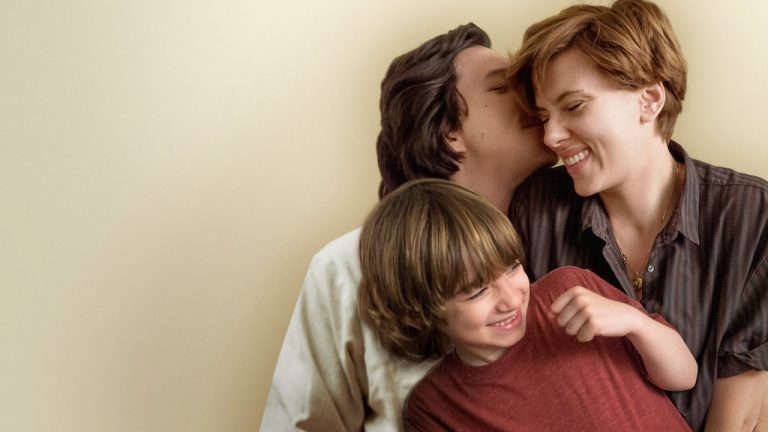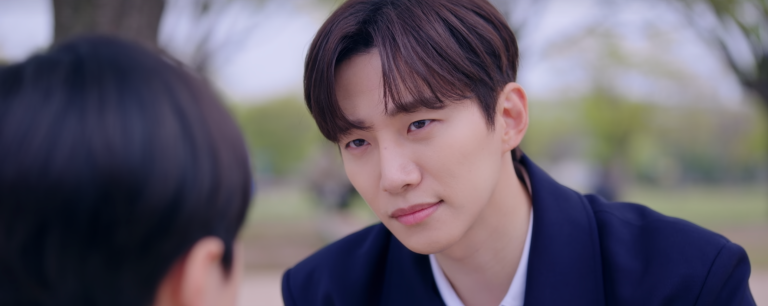Almost every film today, no matter how basic the narrative it builds upon, wants to pass off as progressive. If not in the strictest sense of the term—and too afraid of being boxed into the dreaded category of “woke”—then at least in a way that screams: see, we’re aware. Whether you see modern film as a sincere pursuit of that ideal or just a commercial performance of it is, of course, subjective.
But patterns surface—often shamelessly—in certain titles. Take Felipe Joffily’s “Almost Family” (Original title: Família, Pero No Mucho, 2025), for instance: the latest Netflix-style family sitcom flattened into a feature-length product. Beneath all its glittery, overacted slapstick, it wants to say something profound about letting young people chart their own paths.
Through its shrieky, neurotically dramatic middle-aged leads, it attempts to explore how protective, loving fatherhood can often mask selfish possessiveness and patriarchal ego wars. The cards are predictably laid out: the ‘rational’ voice of reason is the girl’s stepmother, the ex-girlfriend is repurposed into family, and yes, marriage is not a prerequisite for family planning.
But don’t, even for a second, mistake this for a film that’s doing any of that with nuance. “Almost Family” is your textbook “international” comedy that neither has the intellectual rigor nor the emotional substance to pull off its cross-cultural posturing. The ego clashes played out like lazy sitcom misunderstandings. The conventionally hot ex? Slut-shamed by implication and then shoved into wifedom like narrative leftovers.
The supposedly independent daughter and sensible mothers are written with such dull, empty strokes that you can’t imagine these characters existing beyond their relationship to the male center. If there’s one area where the film succeeds in gender neutrality, it’s in making sure Miguel and Filipinho are just as hollow and ill-defined as the women.
To top it off, the film also becomes an accidental case study in why slapstick comedy—especially in multilingual, cross-cultural setups—needs real craft. Writers Leandro Soares and Lucas Blanco lean heavily on “mistranslation” gags that aren’t just unnecessary, but borderline offensive. Yet they’re scattered across the runtime with such confidence, you start wondering if either writer’s ever stepped outside a marketing deck’s idea of internationalism.
The story remains stuck in juvenile binaries of ‘good’ and ‘bad’ parenting, all leading to a moral-science-lesson climax that feels like a school play with Netflix’s money. And whatever goodwill is left is steamrolled by Leandro Hassum, whose performance as Otávio is a relentless display of volume over nuance—exhausting, even when he’s supposed to be funny.
This, then, is our attempt to explain the film to you. If it reads like a thesis on the dysfunction of familial rom-com clichés, that’s only because the film practically begged for one.
Almost Family (Família, Pero No Mucho, 2025) Plot Summary and Movie Synopsis:
Otávio is a middle-aged man who runs a bar and restaurant out of his home in Rio de Janeiro, alongside a helper and his wife, Joana. Joana’s son, Filipinho, also lives with them, though instead of contributing to the bar, he spends his time making TikTok dance videos. Otávio’s daughter Mariana, from his deceased former wife, helps out as well, though her focus lies more in music.
She’s preparing for an audition with the Paris Conservatory’s music program, which is taking place in her hometown. She expects her father to be there, as he had promised, but due to a rush of customers at the restaurant, he fails to show up. Regardless, she plays Vivaldi’s Four Seasons: Summer at the audition as a tribute to her late mother. She’s selected and returns home, only to confront her father, who dodges accountability, blaming work. He reluctantly sends her off to Paris, though he clearly would have preferred she stay back to help.
Why does Mariana return home?

Three years later, Mariana returns home. Joana advises Otávio to be supportive of his daughter and respect her choices. After arriving, Mariana announces that she’s getting married to an Argentinian man she met in Paris. She wants her family to travel with her to Bariloche to meet her fiancé Miguel’s family. Otávio, reluctant to go anywhere cold but determined to be a good father—however performative that might be—joins Mariana, Joana, and Filipinho on the trip.
Having not packed properly for the freezing weather, he ends up whining and shivering his way through Bariloche, especially annoyed by Miguel’s father, Hector, the ultra-rich owner of a restaurant empire in town. Predictably, there’s a comic language barrier, too.
What do Miguel and Mariana decide about where they will live?
Despite secretly enjoying the snowy escapade, Otávio maintains a surly attitude, especially toward Hector, and keeps brushing off Hector’s attempts to share the origin story of his restaurant—how it was built by his grandfather. The two fathers end up arguing over whether Miguel and Mariana will settle in Brazil or Argentina. But the couple throws a curveball, informing everyone that they’ve chosen to move to Europe instead. Things get more awkward when Mariana learns that Miguel’s hot ex, Carol, works in Hector’s restaurant, making both Miguel and Mariana visibly uncomfortable.
Eventually, Miguel manages to convince Otávio to buy some winter clothes. They all head to Cerro Catedral—the biggest ski resort in the country—where Otávio, full of misplaced bravado, claims he’s great at surfing, so skiing should be easy. Naturally, the ski race between the two dads ends in slapstick disaster, with Otávio getting stuck on a tree branch. Meanwhile, Joana and Miguel’s mother hit it off.
What do Otávio and Hector confess to each other?
Later that night, the families dine together. Hector uses the occasion to flex his wine knowledge. Carol arrives, and Otávio’s abrasiveness makes her uneasy. The dinner turns into an informal table soccer match, which quickly devolves into a petty Brazil vs. Argentina spat. After a few drinks, Otávio stumbles upon Miguel and Carol having a private conversation in a room.
The next morning, the group heads out for tobogganing. Miguel tells Mariana that the trip has rekindled his love for Argentina. Mariana warns him that if he plans to stay, he needs to come clean now, so she can call off the wedding. Miguel reassures her that their future is in Europe.
Once again, Hector and Otávio push their competitive streak too far, venturing too deep down a cliff. There, they argue and hallucinate a puma inside a cave. Amid the bizarre tension, they confess to each other that they’re not sold on the marriage. They return to the group, at least pretending to be friends.
Almost Family (Família, Pero No Mucho, 2025) Movie Ending Explained:
Who was Carol actually with?
Later, Otávio tells Joana he doesn’t trust Miguel because of his past with Carol. Joana cautions him to stay out of it—it’s Mariana’s decision. Still, Hector gives Miguel the keys to the family home, trying to persuade him to settle in Bariloche, promising to use his influence to land Mariana a spot in the Bariloche Philharmonic.
That night, Miguel quietly leaves mid-dinner, and Carol is seen coming from the same direction. Otávio follows and ends up near the bathroom, where he hears moaning. He jumps to the conclusion that Miguel is cheating and storms back to the table to announce the affair.
Only, he’s wrong. Carol wasn’t with Miguel—she was with Filipinho. Miguel, on the other hand, had gone to retrieve a violin that Mariana had always wanted. But any goodwill is lost when Miguel later tries to persuade Mariana to stay in Bariloche and accept the Philharmonic offer.
Mariana snaps, accusing Hector of being nothing but the Argentinian version of Otávio—obsessed with control and his son’s proximity. She lashes out at Miguel for succumbing to family pressure and runs to the airport.
Miguel chases after her. The mothers give both fathers a brutal scolding, and then the whole group—including Filipinho—rushes to the airport, causing a scene, finding the couple, and offering apologies.
What happens in the following year?
The following year, Filipinho and Carol get married in Búzios. Though still unmarried, Miguel and Mariana announce to their families that they are expecting a child. The families share a collective embrace.



![The Invisible Man [2020] Review: A Timely Spin on a Classic Source](https://79468c92.delivery.rocketcdn.me/wp-content/uploads/2020/10/the-invisible-man-screenshot-3-768x432.jpg)
![Call My Agent: Bollywood [2021] Netflix Review – A show about the lives of talent agents works when it is leaning into satirizing Bollywood](https://79468c92.delivery.rocketcdn.me/wp-content/uploads/2021/10/Call-My-Agent-Bollywood-768x432.jpg)


